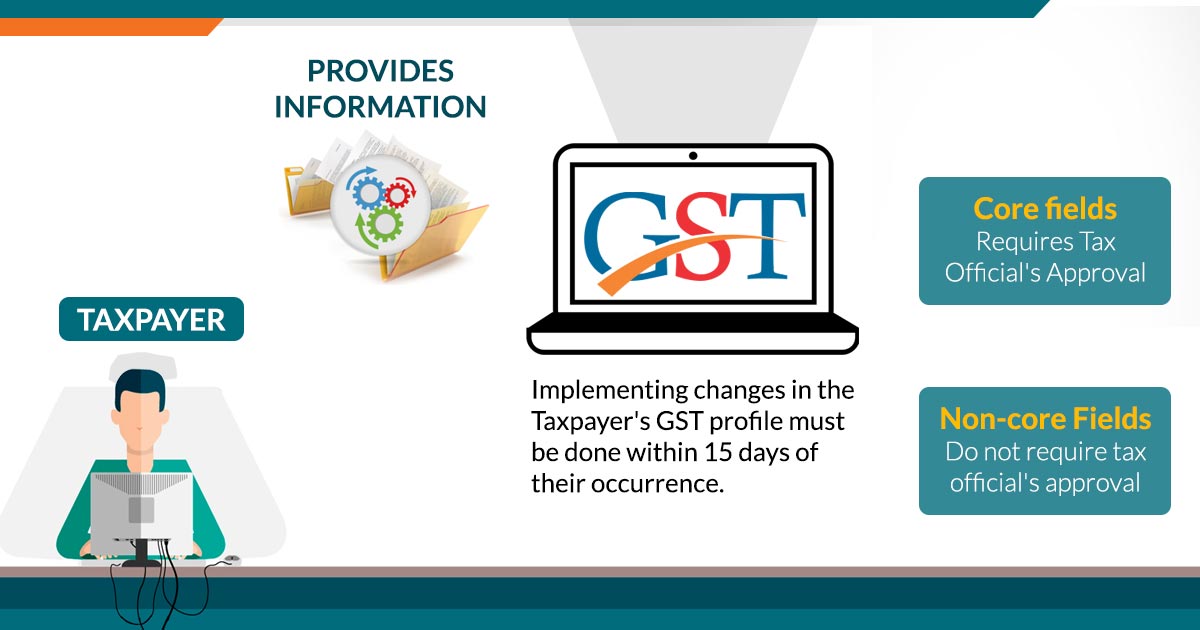Optimize Your Cost Savings with the most effective GST Registration Services in Singapore
Optimize Your Cost Savings with the most effective GST Registration Services in Singapore
Blog Article
Throughout: The Ultimate Roadmap to GST Enrollment for Services Seeking Financial Stability
Navigating the intricacies of Goods and Solutions Tax Obligation (GST) enrollment is a critical step for companies pursuing monetary security. From understanding the basic concepts of GST to following post-registration standards, the process can seem intimidating in the beginning look. However, breaking down the roadmap into convenient actions can improve the enrollment journey for companies aiming to enhance their economic standing. Allow's discover the vital parts that compose this best roadmap and discover exactly how each stage adds to laying a solid structure for financial success.
Comprehending GST Essentials
Digging into the essential principles of Product and Services Tax Obligation (GST) is important for gaining a comprehensive understanding of its effects on companies and the economic climate. GST is a value-added tax levied on the majority of goods and services for residential usage. It has changed numerous indirect tax obligations that existed in the pre-GST period, simplifying the tax obligation framework and boosting simplicity of doing company in India. Under the GST system, both solutions and goods are exhausted at a specific rate, which is identified based upon their classification. If their annual turn over goes beyond the threshold restriction established by the federal government, services are called for to register for GST. Input Tax Credit (ITC) is a significant function of GST, enabling services to assert debt for taxes paid on inputs, reducing the total tax burden. Comprehending the essentials of GST is vital for services to follow tax guidelines, manage their financial resources effectively, and add to the country's financial development by joining a transparent tax system.
Eligibility Requirements for Registration
To register for GST, organizations need to fulfill specific eligibility requirements established by the federal government. The primary qualification requirement is that any type of business included in the supply of goods or services with an annual aggregate turnover above the threshold limitation set by the authorities have to sign up for GST. As of the present regulations, the threshold limit for GST registration is a yearly aggregate turnover of 40 lakhs for businesses running within a state, with the exception of unique group states where the restriction is 20 lakhs. Additionally, particular services are required to register for GST irrespective of their turnover, such as interstate vendors, informal taxed persons, and businesses accountable to pay tax under the reverse cost system. It is vital for businesses to completely assess their turnover and transaction kinds to determine their GST enrollment commitments precisely. Failing to register for GST when eligible can bring about penalties and legal effects, making it essential for services to comply with the specified eligibility criteria.
Documents Needed for Enrollment
Having satisfied the qualification requirements for GST registration, companies need to now guarantee they have the requisite papers in place to continue with the enrollment procedure efficiently. The redirected here files required for GST enrollment normally include proof of organization constitution, such as collaboration deed, enrollment certification, or incorporation certificate for different types of additional hints services. In addition, companies require to offer files establishing the major location of service, such as a rental arrangement or power bill.
Step-by-Step Registration Refine
Starting the GST registration procedure includes a series of organized steps to make sure a seamless and certified enrollment for organizations. The initial step is to go to the GST portal and complete the registration form with accurate details of business entity. Following this, the applicant receives a Short-lived Recommendation Number (TRN) which is made use of to resume the application procedure if it's not completed in one go.
Following, all required files based on the list given by the GST portal demand to be submitted. These records generally include proof of organization address, identity and registration proofs of promoters, financial statements, and business entity's PAN card.

Post-Registration Conformity Standards

Conclusion
To conclude, companies seeking financial stability should comprehend the basics of GST, satisfy qualification requirements, collect needed records, adhere to the step-by-step registration process, and abide by post-registration guidelines - Best GST registration services in Singapore. By sticking to these actions, businesses can guarantee conformity with tax policies and preserve monetary stability in the lengthy run
Additionally, particular organizations are required to sign up for GST regardless of their turn over, such as interstate suppliers, casual taxed persons, and organizations accountable to pay tax under the reverse charge mechanism.Having fulfilled the qualification criteria for GST enrollment, businesses should currently guarantee they have the requisite documents in area to proceed with the registration process successfully. The records required for GST registration generally consist of proof of business constitution, such as collaboration deed, enrollment certification, or incorporation certificate for different kinds of companies. Furthermore, services require to give files establishing the principal place of organization, such as a rental arrangement or electrical energy expense.Starting the GST enrollment procedure involves a series of structured actions to guarantee a certified and smooth enrollment for businesses.
Report this page